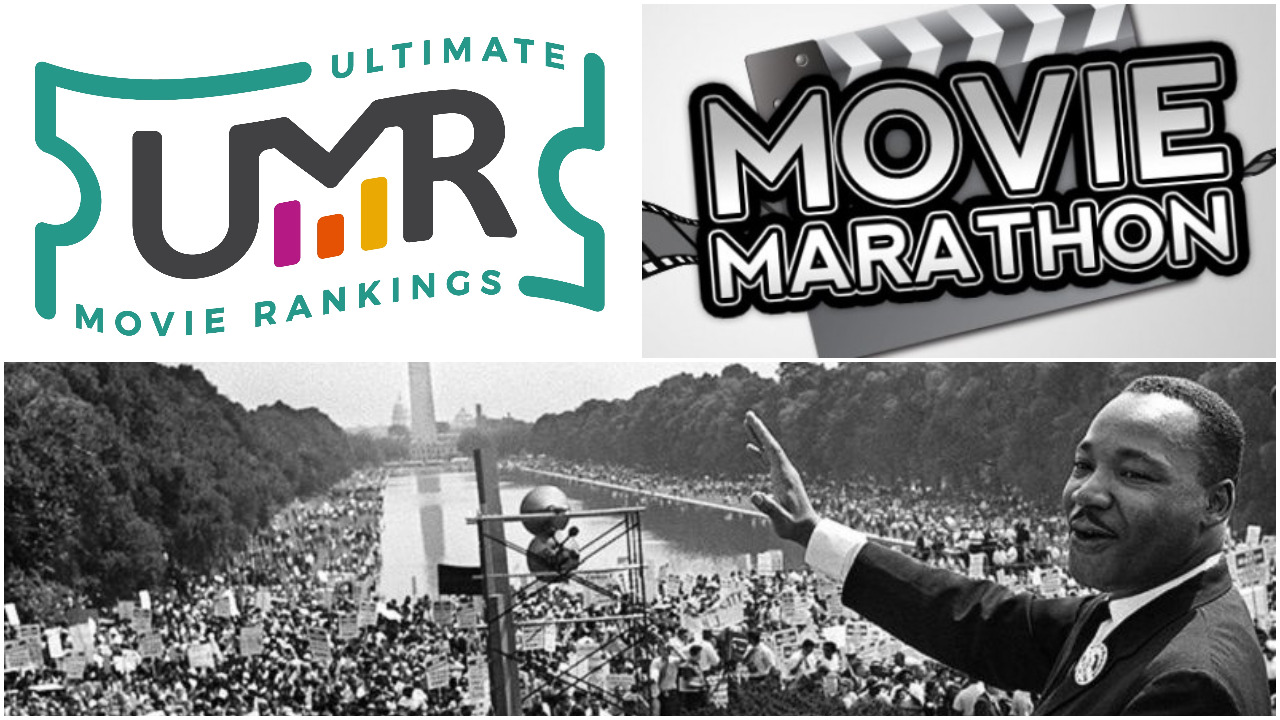 To celebrate Martin Luther King’s birthday, we felt it would be interesting to come up with a list of Civil Rights Movies n Chronological Order of the Real Events. To make our marathon the movie had to cover an actual event. Lots of movies cover this subject but all fictional stories were excluded from our marathon. To make it even more interesting we felt it should be in chronological order of the real events. So combing our love of movies and history we started researching. In the end we came up with 16 movies in our marathon.
To celebrate Martin Luther King’s birthday, we felt it would be interesting to come up with a list of Civil Rights Movies n Chronological Order of the Real Events. To make our marathon the movie had to cover an actual event. Lots of movies cover this subject but all fictional stories were excluded from our marathon. To make it even more interesting we felt it should be in chronological order of the real events. So combing our love of movies and history we started researching. In the end we came up with 16 movies in our marathon.
Our 16 movies in this Civil Rights Movie marathon include movies released in theaters, made for television and one documentary. We started in the Year 1841 and stopped in the Year 1968. This page attempts to cover 137 years. That time span saw the start and stop of the Civil War, World War I, World War II, and the Korean War. The Vietnam War was still going on in 1968. In that 137 years there were 28 different Presidents….from John Tyler to Richard Nixon.
Total running time to watch all 16 movies is 2,043 minutes or 34.05 hours or 1.41 days of non-stop Civil Rights movies. Each block of information provides the name of the real event, along with the actual date, and a brief description of the movie that retells the actual event. We understand that the movies are not always historically accurate but we really feel they do provide a basic background view of some of the most famous events of the Civil Rights movement.
Life Before The Civil War: 1841 through 1853
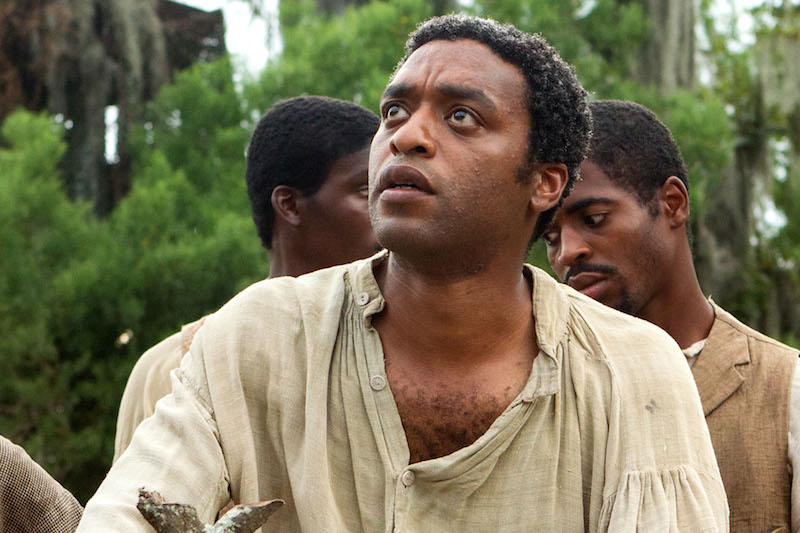
The real event: Solomon Northup was a free-born African American from New York, he was the son of a freed slave and a free woman of color. In 1841, he was offered a traveling musician’s job and went to Washington, D.C. There he was drugged, kidnapped, and sold as a slave. He was shipped to New Orleans, purchased by a planter, and held as a slave for 12 years. We he gained his freedom in 1853 he wrote Twelve Years A Slave and became an abolitionist for the remainder of his days.
The movie: Twelve Years A Slave (2013) Steve McQueen’s look at Solomon Northup’s 12 year nightmare is one of the best movies of the last 10 years. Quality of the movie? Won 3 Oscars® including Best Picture as well as a Best Supporting Actress Oscar® for Lupita Nyong’o.
Second Battle of Fort Sumter: Late 1862 – July 18th 1863

The actual event: Robert Gould Shaw accepted command of the first all-black regiment (54th Massachusetts) in the Northeast and encouraged the men to refuse their pay until it was equal to the white troops’ wage. The 54th would be one of the first all-black regiment to fight in the Civil War. Though it was a tactical defeat the publicity of the battle of Fort Wagner led to further action for black U.S. troops in the Civil War.
The movie: Glory (1989) Movie follows the origins of the 54th Massachesetts all-black regiment. Matthew Broderick plays Robert Gould Shaw while Morgan Freeman and Denzel Washington play soldiers in the regiment. This excellent movie won Denzel is first Oscar®….and it was deserved. One of our favorite movies of all-time.
13th Amendment to Constitution – January-April 14th 1865
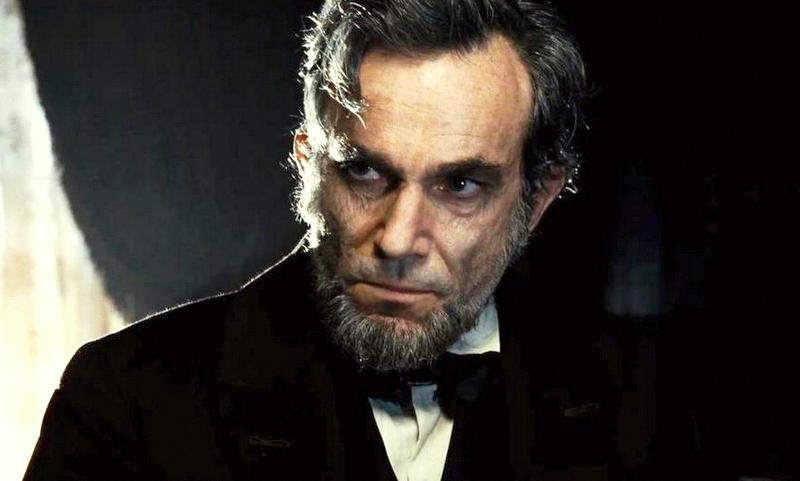
The actual event: Abraham Lincoln’s Emancipation Proclamation freed the slaves in 1863. As the war near it’s end Lincoln was concerned his proposed 13th amendment would be defeated by the returning slave states. Lincoln felt it was imperative to pass the amendment before that, thus removing any possibility slaves who have been freed may be re-enslaved. After many obstacles the 13 Amendment passed by a margin of two votes.
The movie: Lincoln (2012) Lincoln earned 12 Oscar® nominations winning twice. Daniel Day-Lewis is amazing as Lincoln….and won his record third Best Actor Oscar® for playing Lincoln. The movie follows Lincoln from January 1865 to April 14th 1865. On April 15th, Abraham Lincoln was assassinated while watching a play.
World War II: 1942 – 1945

The real event: The Tuskegee Airmen is the popular name of a group of African-American military pilots (fighter and bomber) who fought in World War II. 99th Pursuit Squadron and the 332nd Fighter Group flew in combat missions. The dive-bombing and strafing missions under Lieutenant Colonel Davis, Jr. were considered to be highly successful.
The movie: Red Tails (2012) A crew of African American pilots in the Tuskegee training program, having faced segregation while kept mostly on the ground during World War II, are called into duty under the guidance of Col. A.J. Bullard. This is a very enjoyable George Lucas produced movie. 1995’s The Tuskegee Airmen is another fine movie on this subject.
Jackie Robinson Joins The Brooklyn Dodgers: 1945 – 1947
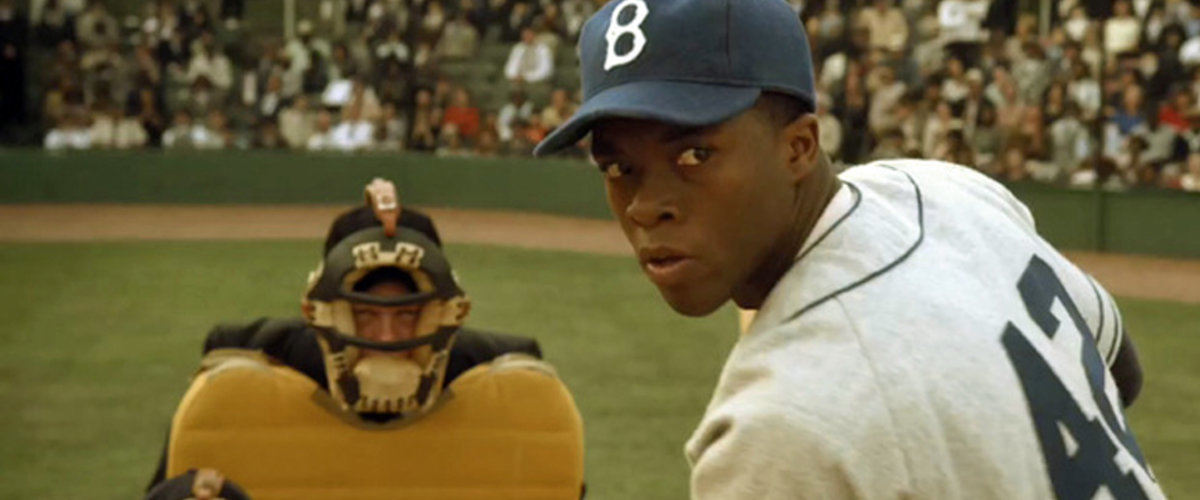
The real event: In August of 1945, Branch Rickey signed Jackie Robinson to a professional baseball contract. After spending 1946 in the minor leagues, Robinson was called up to the Dodgers 6 days before the start of the 1947. Robinson broke the baseball color line when the Dodgers started him at first base on April 15, 1947.
The movie: 42 (2013) In 1947, Jackie Robinson (Chadwick Boseman) becomes the first African-American to play in Major League Baseball in the modern era when he was signed by the Brooklyn Dodgers and faces considerable racism in the process. Harrison Ford in an outstanding performance plays Branch Rickey. Jackie Robinson actually played himself in 1950’s The Jackie Robinson Story…but 42 is a much better movie.
Brown Vs Board of Education: 1951 – May 17th 1954
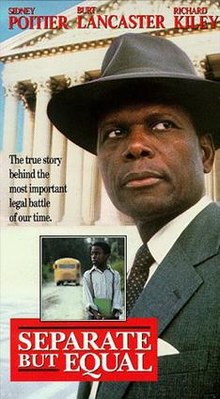
The real event: Brown v. Board of Education , was a landmark United States Supreme Court case in which the Court declared state laws establishing separate public schools for black and white students to be unconstitutional. Handed down on May 17, 1954, the unanimous (9–0) decision stated that “separate educational facilities are inherently unequal.” This was major victory of the Civil Rights Movement.
The movie: Seperate But Equal (1991)This mini-series stars movie legends Sidney Poitier and Burt Lancaster. A dramatization of the American court case that destroyed the legal validity of racial segregation. Poitier’s performance as Thurgood Marshall earned him a Golden Globe® and Emmy® nomination. Overall this excellent mini-series picked up 8 Emmy® nominations.
Rosa Parks: December 1st 1955

The real event: On December 1, 1955, in Montgomery, Alabama, Rosa Parks refused to obey bus driver James F. Blake’s order to give up her seat in the “colored section” to a white passenger, after the whites-only section was filled. Parks was not the first person to resist bus segregation…..but….Parks’ act of defiance and the Montgomery bus boycott became important symbols of the modern Civil Rights Movement.
The movie: The Rosa Parks Story (2002): Rosa Parks recalls events leading to her act of peaceful defiance that prompted the 1955 bus boycott in Montgomery, Alabama. Parks is played wonderfully by Angela Bassett. Bassett would earn an Emmy® nomination for her performance. Rosa Parks can be seen in the archive footage shown in this TV movie.
Montgomery Bus Boycott: December 1955 – December 1956
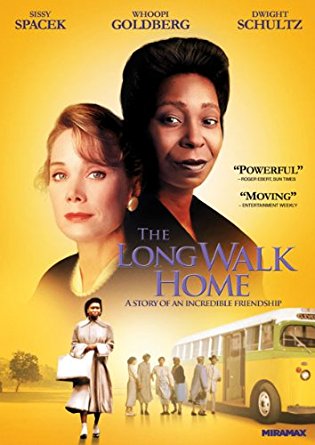
The real event: The Montgomery Bus Boycott was a seminal event in the Civil Rights Movement, was a political and social protest campaign against the policy of racial segregation on the public transit system of Montgomery, Alabama. The campaign lasted from December 5, 1955—to December 20, 1956, when a federal ruling, Browder v. Gayle, took effect, and led to a United States Supreme Court decision that declared the Alabama and Montgomery laws requiring segregated buses to be unconstitutional.
The movie: The Long Walk Home (1990) In this one, two women, black (Whoopi Goldberg) and white (Sissy Spacek), in 1955 Montgomery Alabama, must decide what they are going to do in response to the famous bus boycott lead by Martin Luther King. Cool movie trivia: One of the buses used in the background is the actual bus #2857 on which Rosa Parks was arrested.
NASA Help on Friendship 7 – 1958 – February 20th 1962

The real event: Katherine Coleman Goble was an African-American mathematician who made contributions to the United States’ aeronautics and space programs with the early application of digital electronic computers at NASA. Known for accuracy in computerized celestial navigation, she conducted technical work at NASA that spanned decades. During this time, she calculated the trajectories, launch windows, and emergency back-up return paths for many flights from Project Mercury, including the early NASA missions of John Glenn (Friendship 7 launched on 2/20/62) and Alan Shepard, and the 1969 Apollo 11 flight to the Moon,
The movie: Hidden Figures (2016) The story of a team of female African-American mathematicians who served a vital role in NASA during the early years of the U.S. space program. Watching the struggles the three main characters in this movie deal with in this movie will truly make you understand how messed up things were back then.
16th Street Bapist Church Bombing – September 15, 1963
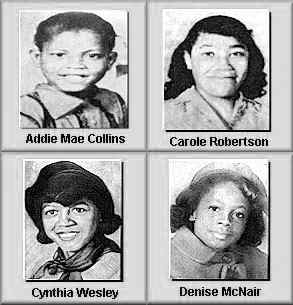
The real event: The 16th Street Baptist Church bombing was an act of white supremacist terrorism. This occurred at the African-American 16th Street Baptist Church in Birmingham, Alabama, on Sunday, September 15, 1963, when four members of the Ku Klux Klan planted at least 15 sticks of dynamite attached to a timing device. Described by Dr. Martin Luther King Jr. as “one of the most vicious and tragic crimes ever perpetrated against humanity”, the explosion at the church killed four girls and injured 22 others.
The movie: 4 Little Girls (1997) Spike Lee’s movie of the notorious racial terrorist bombing of an African American church during the Civil Rights Movement is the only documentary in our marathon. 4 Little Girls received a Best Documentary Oscar® nomination and is a must watch!
Murders of Chaney, Goodman, and Schwerner – June 1964
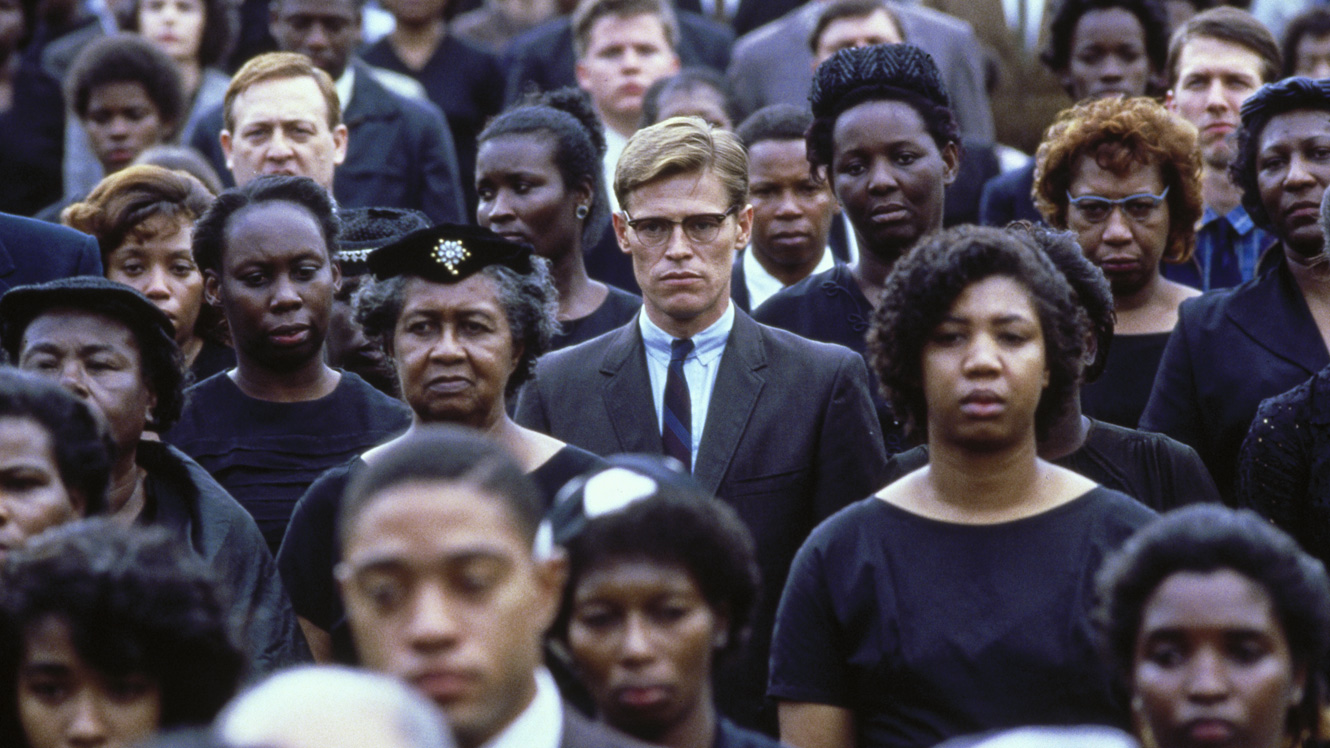
The real event: The Mississippi Burning murders, involved three activists that were abducted and murdered in Neshoba County, Mississippi in June 1964 during the Civil Rights Movement. They had been working with the Freedom Summer campaign by attempting to register African Americans in Mississippi to vote. This registration effort was a part of contesting over 70 years of laws and practices that supported a systematic policy of disenfranchisement of potential black voters by several southern states that began in 1890.
The movie: Mississippi Burning (1988) Two F.B.I. Agents (Gene Hackman and Willem Dafoe), with wildly different styles, arrive in Mississippi to investigate the disappearance of some civil rights activists. This movie picked up 7 Oscar® nominations…including a Best Picture nomination. If you have time check out 1997’s 4 Little Kids…which is an excellent documentary that details the tragic death of four little girls in a church bombing.
Civil Rights Act of 1964: Enacted July 2nd, 1964
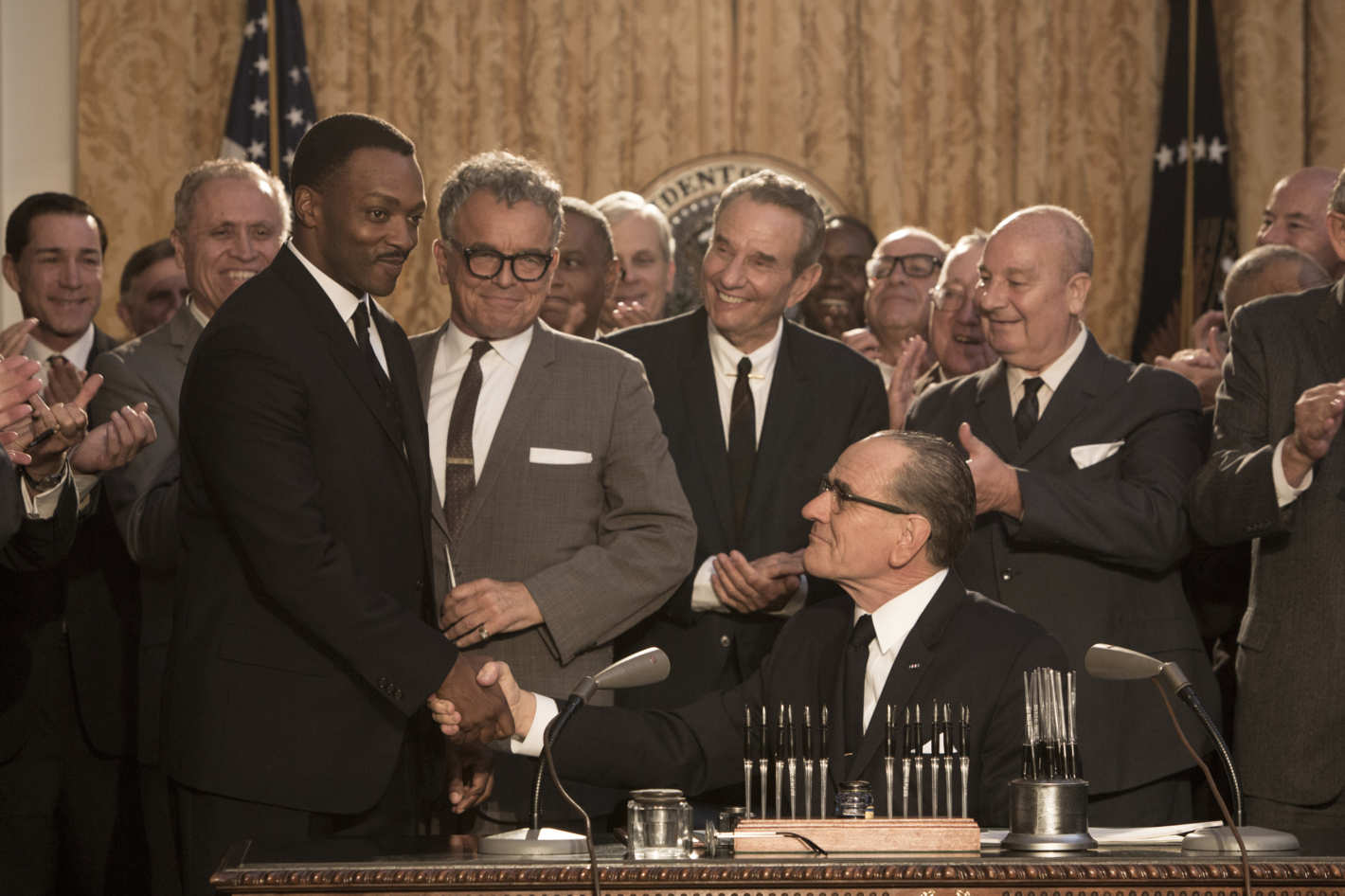
The real event: The Civil Rights Act of 1964 is a landmark civil rights and US labor law in America that outlaws discrimination based on race, color, religion, sex, or national origin. It prohibited unequal application of voter registration requirements, racial segregation in schools, employment, and public accommodations. Powers given to enforce the act were initially weak, but were supplemented during later years.
The movie: All The Way (2016) Lyndon Johnson becomes the President of the United States in the chaotic aftermath of John F. Kennedy’s assassination and spends his first year in office fighting to pass the Civil Rights Act. In this HBO movie, Bryan Cranston plays LBJ while Anthony Mackie plays Martin Luther King. This movie picked up 8 Emmy® nominations.
Selma to Montgomery March : March 21st – March 25th 1965
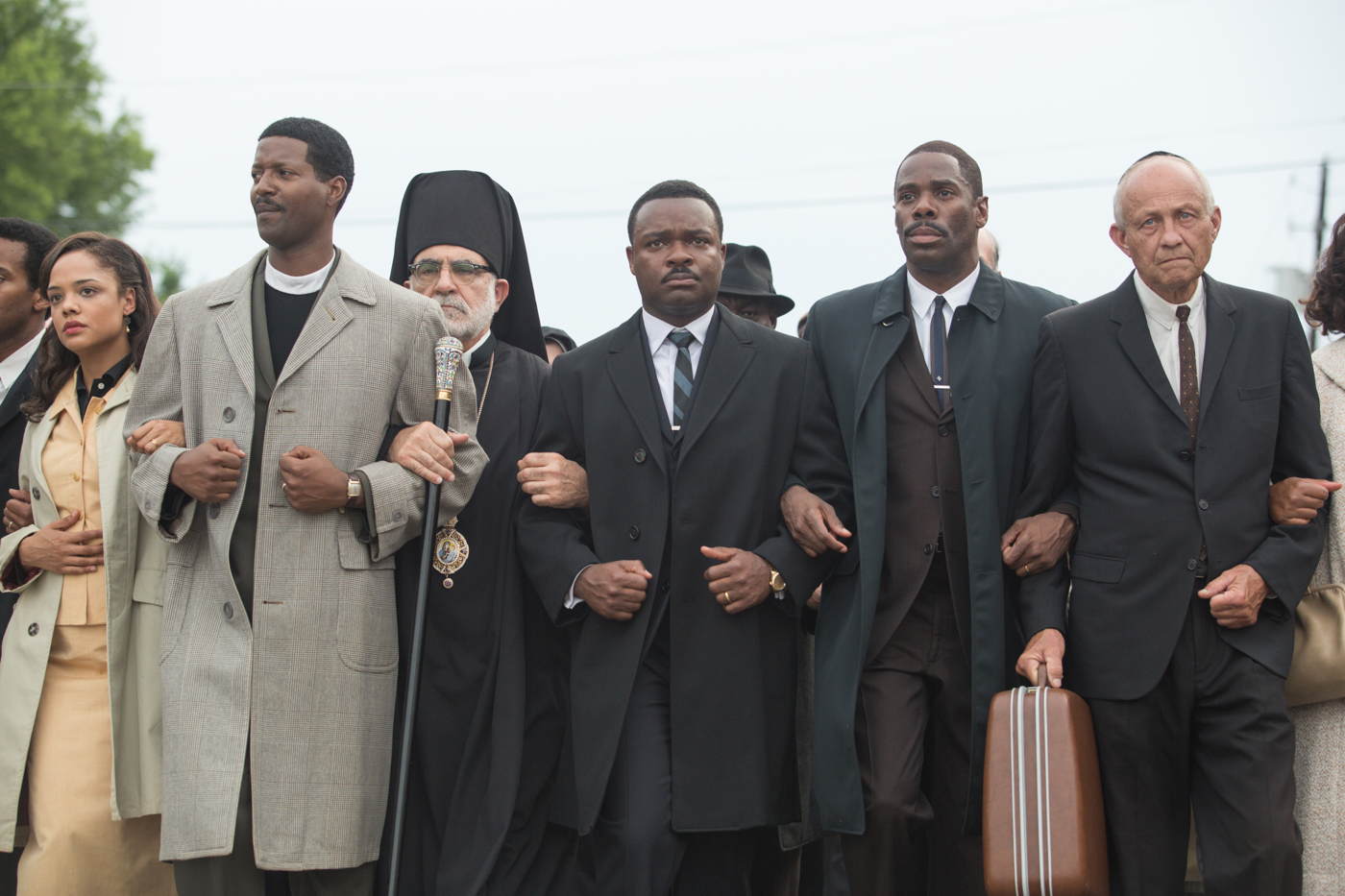
The real event: The 54-mile march was organized by nonviolent activists to demonstrate the desire of African-American citizens to exercise their constitutional right to vote, in defiance of segregationist repression, and were part of a broader voting rights movement underway in Selma and throughout the American South. By highlighting racial injustice, they contributed to passage that year of the Voting Rights Act, a landmark federal achievement of the Civil Rights Movement.
The movie: Selma (2014) This movie is a chronicle of Dr. Martin Luther King, Jr.’s campaign to secure equal voting rights via an epic march from Selma to Montgomery, Alabama, in 1965. David Oyelowo earned a Golden Globe nomination for playing King. Somehow he did not receive an Oscar® nomination for the the movie.
Loving Vs Virginia: June 12th 1967

The real event: Loving Vs Virginia is a landmark civil rights decision of the United States Supreme Court, which invalidated laws prohibiting interracial marriage. Richard and Mildred Loving were married in 1958. They were by law, not allowed to live together in Virginia. In 1964, Mildred, sent a letter of protest to then Attorney General, Robert F. Kennedy. Kennedy referred her to the American Civil Liberties Union (ALCU). It took their case three years to reach the Supreme Court.
The movie: Loving (2016) Loving details the story of Richard and Mildred Loving, a couple whose arrest for interracial marriage in 1960s Virginia began a legal battle that would end with the Supreme Court’s historic 1967 decision. Ruth Negga earned a Best Actress Oscar® nomination for her role as Mildred.
Detroit Riots: July 23rd – July 27th 1967

The real event: The Detroit Riots of 1967 were the bloodiest race riot in the five-year wave of violence known as the “long, hot summers of 1964-68. The precipitating event was a police raid of an unlicensed, after-hours bar then known as a blind pig, on the city’s Near West Side. It exploded into one of the deadliest and most destructive riots in American history, lasting five days and surpassing the violence and property destruction of Detroit’s 1943 race riot just 24 years earlier.
The movie: Detroit (2017) This fact-based drama is set during the 1967 Detroit riots in which a group of rogue police officers respond to a complaint with retribution rather than justice on their minds. Movie stars John Boyega (Star Wars) and Anthony Mackie.
Assassinations of Martin Luther King and Bobby Kennedy: April 4th, 1968 and June 5th, 1968
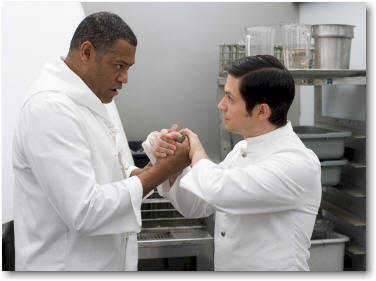
The real event: Within two months in 1968, the Civil Rights Movement lost two of their greatest leaders. First on April 4th, Martin Luther King was assassinated. Then almost two months to the day Robert Kennedy was assassinated after winning the California Democrat Presidential Primary.
The movie: Bobby (2006) The story of the assassination of U.S. Senator Robert F. Kennedy, who was shot in the early morning hours of June 5, 1968 in the Ambassador Hotel in Los Angeles, California, and twenty-two people in the hotel, whose lives were never the same. This movie does a pretty good job of capturing the mood of America after a very brutal 5 year span. Seems after the tragic deaths of MLK and RFK that things turned towards better days….granted we still….almost 50 years later have a long way to go.
Some of the movies that we did not make our marathon
- Lee Daniels’ The Butler
- The Help
- Malcolm X
- The Great White Hope
- The Bingo Long Traveling All-Stars & Motor Kings
- The Birth of a Nation (2016)
- Free State of Jones
- Ghost of Mississippi
- 10,000 Black Men Named George
- Glory Road
- In The Heat of the Night
- Roots
- Guess Whose Coming To Dinner
- Amistad
- To Kill A Mockingbird
We could not find any movies on the Harlem Hellfighters…but we did not want to exclude them…so our last section is about the African Americans that fought in World War1 between 1913-1918
The actual event: 369th Infantry Regiment was an infantry regiment during World War I. The Regiment consisted mainly of African Americans, though it also included a number of Puerto Rican Americans during World War II. It was known for being the first African American regiment to serve with the American Expeditionary Forces during World War I. Sadly there does not seem to be any movies about the Harlem Hellfighters. Two members of the regiment, Henry Johnson and Needham Roberts fought off a 24-man German patrol, though both were severely wounded. They would win World War I Victory Medals.
The movie: Even though almost half a million African Americans served in World War 1, there are sadly very few movies about their service. The soldiers were treated horribly when they returned home. Many considered their horrible treatment one of the first big steps to the start of the Civil Rights movement.
Any feedback would greatly be appreciated…..Happy Martin Luther King Day.
From my own personal perspective The Work Horse’s implication that Brando’s heart was in the correct place when it came to humanitarian issues is accurate.
However it’s an open question whether Marlon didn’t accept that sometimes “discretion is the better part of valour” or whether he had a blind spot about which kinds of audiences would be receptive to his outspoken views on certain subjects regarded as “progressive” or controversial.
In Brando’s time – and it may still be so today – when big stars did long largely-solo concerts they asked other major performers to do a spot for them during the interval when they needed a break. Bob Hope used to do that for Sinatra at Frankie’s musical concerts.
Brando and Michael Jackson were for some reason big friends for a while and Michael paid Marlon $1 million to do an interval spot where the tickets included the price of a posh dinner and were quite extravagant.
Marlon duly came out and gave the feasting audience a talk on the levels of world poverty, saying that a lot of it could be alleviated if every American who could afford it donated to charity 1% of their income.
Unfortunately that didn’t induce the gathering to hurriedly reach for their wallets; and instead they booed Brando and some even threw food at him.
I could be of course that for some the problem wasn’t what he was saying but the mere fact that he was BRANDO. I can’t recall exactly when that happening occurred – but it certainly was in Joel Hirschhorn’s time.
Both the singer AND the song WERE undoubtedly the problem though at the 1973 Oscars when Indian girl Sacheen Littlefeather (who sadly died in Oct last year aged 75 from cancer) stepped onto the stage and announced that she was there on Brando’s behalf to refuse his Godfather Oscar because he didn’t like the way Hollywood depicted the Indian cause on screen.
Apparently it took about half a dozen security guards to restrain John Wayne when he clamoured to get onto the stage to manhandle Sacheen; and Clint Eastwood put out a public statement saying that HE was going to protest next time an Indian shot a white man on screen!-
and when Littlefeather returned to Brando’s home in Mulholland Drive to report back to him a shot was fired at her from a passing car. Ah Americans – they are not exactly timid souls who “hide their light under a bushel” are they?
I notice that in your “reserve” list of Civil Rights movies Guess Who’s Coming to Dinner pops up. It did take a sympathetic attitude to the race issue but has lost some of its “progressive” credentials with modern film historians who claim that at times it tended to be patronising and even condescending to both African American and the American working classes.
The dialogue they particularly highlight in support of their contentions is Tracy saying of Poitier’s character “Who would have thought that the son of a black postman would do so well in his profession?”
Tracy himself seemed to dislike just about everybody and certainly was needlessly so nasty to many people that in certain circles he would probably have been well- “chinned” in his time for his aggressive remarks. For example he addressed one interviewer who asked him a tricky question as “chowderhead”.
And I mean what even-routinely-courteous person would have said to the harmless Anna Kashfi was just trying to have a sociable group discussion on set about acting“ Acting doesn’t take brains – look at your husband!”?
She was married to Brando at the time and Tracy had a particular hatred of Marlon because, in the opinion of some observers, pence resented Marlon because he perceived the latter as stealing some of his thunder as
(1) THE Hollywood ACTOR as opposed to simply great star (2) THE Hollywood Liberal though Brando was probably further to what in America is perceived as “The Left” than Spence was.
Certainly we can’t blame Joel’s influence on Spence for the latter’s attitude to the Great Mumbler as Spence died long before that notorious 1983 book was written.
“No Viet Cong ever called me “nigger”. Muhammad Ali explaining whey he was refusing to fight in the Viet Nam war
HI BIG [Say wasn’t Hanks in a film of that name?]
Thanks for your response and the interesting trivia about Hidden Figures. That’s one of the few Costner films in the past almost-30 years that have been serious hits and he has had just supporting roles in all of those.
I suppose Waterworld back in 1995 ended his big-star days because of the controversy over its cost; though ironically it apparently did end up making a profit on the back of foreign revenues and home entertainment outlets.
I am fond of Kev so for me it is a pity about his decline after only about 8 years in reality at the very top: from the Untouchables in 1987 to Waterworld in 1995 he was such an immense star that even the legendary Clint Eastwood took 2nd billing to him in 1993’s A Perfect World.
Heck Clint himself was such a big star in those days that not even Myrna Loy would have been able to command top billing above him so it shows you the esteem in which Hollywood held Kevin in those golden pre-Waterworld years. Ah yesterday!
Staying with our African American link Kev has in recent times paid public tribute to his co-star in the monster hit 1992’s The Bodyguard on her tragic premature death-
Whitney Houston at just 49. The Bodyguard is one of those films that I can watch again and again; but unfortunately it is arguably Kevin’s final blockbuster hit as a star prior to his abrupt decline.
HI BRUCE:
I was pleased to see your Civil Rights page appearing and thought it was a good way of honouring MLK day. I am a great admirer of Dr King.
I had intended to offer comment on the day itself but could not fit a post into an unusually busy day– you’re not the only guy that can be pressed for time you know! But sorry about the delay.
I personally am in fact a great admirer of Dr King and so was Brando who was so upset by Martin’s assassination that he couldn’t make movies for a while.
Indeed Paul Newman offered Brando the part of Butch (and Paul would be Sundance) in 1969’s Butch Cassidy and the Sundance Kid but so depressed was Marlon at the time that he turned it down. Paul said that he offered MB a role in every movie over which he, Newman, had production control.
I was pleased to see that a production about Rosa Parks was included in your main selections as Rosa was another progressive African American whom I admire.
IN Dan-like fashion Time magazine brought Dr King, Brando and Rosa together by including them in its 100 Most Influential People of the 20th Century which selected the perceived highest achievers from many callings and walks of life:
for example The Kennedys, FDR, Mother Teresa of Calcutta, Albert Einstein and Princess Diana of England. The US Congress also honoured Rosa by declaring her “the first lady of civil rights” and “the mother of the freedom movement”.
Anyway well done in giving us your Civil Rights page for MLK day which obviously I “Vote Up” A great and intelligent historical cultural page which transcends just the subject of movies.
Hey Bob…thanks for the thoughts on our Civil Rights Movie Marathon page. Statistically….it has not been as popular as my World War 2 Movie Marathon page…..but like you said in your comment, MLK day seems like a great day to give a little bit of the spotlight. Good trivia on Brando and MLK. Brando was certainly one of the Hollywood leaders to bring civil rights to all. Gotta give the big man lots of credit for that. As for Rosa Parks….she got some love on MLK day….but will get lots more when February rolls around and Black History Month arrives. At my school we do a lot during that month, including lots of shout outs to Ms. Parks. Good stuff.
FYI – Hidden Figures…actually takes place very close to my house…and Dr. Katherine is a local hero…she actually passed away only a couple of years ago…but she has lots of relatives that still live here. I remember when I first saw that movie, I was shocked when the screen showed the location as Newport News, Virginia. That is where my dad worked for over 30 years.
cogerson, an update might include green book.
Hey bob cox….good suggestion.
HI BOB COX
For once I agree with The Work Horse – good suggestion!